
Grant Nicholas discusses this fertile period of songwriting
Feeder’s Grant Nicholas discusses his solo career, the freedom it affords his songwriting and what it means for his band
Formed in Newport, Wales back in 1992, Feeder have been a popular mainstay of the British rock scene for more than two decades, forging their own distinctive brand of anthemic guitar music. Clocking up eight UK Top 40 albums, with six reaching the Top 10 and three in the Top 5, the band survived several changes in personnel – including the tragic suicide of drummer Jon Lee – but Feeder’s guitarist-frontman Grant Nicholas has remained a constant presence throughout their tenure.
Last August saw him release his first solo album, Yorktown Heights. Stripped-back and intimate, the record was something of a revelation and allowed Grant the opportunity to step out from behind the wall of guitars that have become Feeder’s signature sound.
Songwriting catches up with Grant ahead of the release of new mini-album Black Clouds to discuss this fertile period of songwriting and what the future holds for his band.
Discover Grant Nicholas’ Songwriting Survival Kit
So, how is life as a solo artist?
“It’s different but it’s the same process. I’m still songwriting at home on an acoustic guitar whenever I get inspired, but it is a very different headspace. It’s almost like starting again. I’ve done a lot with Feeder over the years but, just because you’re in a big band, you can’t expect people to suddenly jump on everything you do. You have to earn it.”
Does it feel like freedom?
“Freedom yes, but don’t get me wrong, I still love Feeder. Feeder is a very small operation, it’s just me and Taka [Hirose, on bass guitar]. We’ve always had a lot of freedom as a band but, when you get to a certain level, people make their mind up about you and expect you to have a certain sound and I think that the nice thing about being a solo artist is that it’s a blank canvass. It was nice to make a record with no real expectations.”
When did you decide to write the solo songs?
“We did the Generation Freakshow tour for the last Feeder album. It went really well but I wanted to stop on a high. We did a sold-out gig at Brixton Academy and had a fantastic night, everyone was buzzing and I felt it was a good time to leave things for the time being.”
I THOUGHT THIS IS A GOOD TIME TO DO THIS NOW BEFORE I’M TOO OLD. NOT THAT YOU’RE EVER TOO OLD TO WRITE SONGS.
Yorktown Heights is much more pared back, with noticeably more finger-picking, but would you say there are also songs that wouldn’t sound out of place on a Feeder album?
“It’s the same guy writing the songs so it’s always going to have that element. I know that Feeder is a band but I’ve always been the writer. I’d be kidding myself if there wasn’t going to be similarities here and there. I can see what you’re saying about the album version of Time Stood Still but if you hear it live it’s a different beast. The original version of that song is a finger-picky version of Tom Petty but to be honest a lot of Feeder songs aren’t dissimilar to that, I just put heavier guitars on it. I’ve always loved melodic music and I’ve done finger-picking on Feeder songs before but they’re usually ones which end up as B-sides. Don’t get me wrong I love the power of rock guitars but I also appreciate that a good song should work when it’s stripped right back. I think on the solo records I’ve pushed myself harder to not use the normal formulas that I used, such as the guitars sound. I tried to strip it back to how those songs first started and keep them a bit more that way.”
You mention the influence of Tom Petty. Has he always been an influence?
“People think Feeder are just this heavy band but you can hear over the years that I grew up listening to a lot of melodic stuff like Tom Petty, Neil Young, Fleetwood Mac, Simon & Garfunkel, Nick Drake. I was into that before I was into the heavier stuff but then I got into punk rock, 70’s rock and Black Sabbath.”
Is it correct that the first gig you went to was Black Sabbath at Bristol’s Colston Hall?
“It was either Black Sabbath or Ozzy Osbourne, it was so long ago. I always loved the riffs of the Sabbath stuff, that’s what appealed to me at the time. Bristol was a big influence on me growing up. My school maths teacher was massively into his music and took kids from school, who were interested in bands, to go and see rock concerts at the Colston Hall. He was a massive influence on me and I think that seeing bands at that age, and hearing them through a PA, just blew me away. It had such a huge impact on me musically, that I found my vocation in life and found what I wanted to do. Obviously I love the power of riffs and what you get with rock but I’ve always been more at home with the singer-songwriters. I just love good songwriters and that’s what I’ve always loved.”
You can hear that in your solo work, as well as some Nick Cave.
“I love Nick Cave, I love that drama and also Johnny Cash. There’s something in the way they sing that has a real darkness in it that I really love and I love the way the voice just sits big and speaks. I really wanted to try to do that with my voice this time, which I’d never felt comfortable to do before on a lot of Feeder songs, but I think on this record I felt if I’m going to do a solo record it should really be about the lyrics and the voice and the songs as well, not just about all the guitar parts. This is time to show a bit more of my heart and soul. When I made the album I thought this could be a record that I’d just give to my family and kids but I was lucky enough to get some interest and found somebody that got behind me, so I decided to release it.”

Grant: “I think a solo record gives you a bit of freedom to get closer to the heart and soul.”
Is that why there are some really intimate moments on Yorktown Heights, like Father To Son?
“On a solo record it feels a bit more natural to write about things that are closer to home, you just can’t help it. I wouldn’t necessarily feel that comfortable doing it on a Feeder record but I think a solo record gives you a bit of freedom to get closer to the heart and soul.
“I wrote Father To Son for my little boy who is now seven. I wasn’t trying to be overly sentimental like the classic John Lennon Beautiful Boy thing but when you have kids it does change the way you think. I tried to do a song that was maybe not that obvious. The lyrics are quite obvious in that I’m saying what I feel, but I think that the whole style of the song is a little bit quirky – it’s not a typical ballad. Obviously I wanted to write something about my little boy, which I hadn’t really done before, and I thought I’ll do it and see what happens. It’s a nice song to play live – we don’t always play it, but when we do people just connect with it. Maybe it’s the sentiment, I don’t know.”
You must have found over the years that people give meaning to your songs that you either did or didn’t intend?
“Totally, the thing about music is that there’s always that ‘what’s your song about?’ For me, you don’t always want to explain things in black and white, but with a song as obvious as Father To Son I’m not going to hide what it’s about. It’s also about me thinking back to me and my dad as well as me and my son – it’s a flashback to that and even thinking about my grandad and my dad. It’s a family tree in some way, as well as thinking what’s around the corner. I’m a lot older than when I wrote the first Feeder album, so I do worry about stuff a lot more than when I was in this crazy band that had just signed a record deal and were touring America. But I don’t want people to hear my album and go ‘this is all a bit too much’. Hopefully I’ve been tasteful enough and there are songs on the album that are open to interpretation. That one was just a little closer to heart.”
Would you agree that there’s darkness to the solo work?
“Yeah there are some dark moments on there and that reflects life. I remember when it came out, people said it’s really dark and manic depressive. I’m a songwriter, I’m going to write about what’s on my mind at that time. There are always going to be dark periods in anyone’s life, no matter what you do for a living and as a writer you feed on that. Sometimes I’ve written my most dark songs when I’m at my happiest. Life isn’t always perfect and songwriting is all about that. People find comfort in hearing songs that they relate to and can go ‘actually I am going through a bit of that myself’ and if I’ve achieved that as a songwriter, even a tiny amount, then I’ve achieved something. That’s the beauty of music and what drives me as a writer.”
Do you think you’ve managed that in your career?
“It’s hard. I feel that on the solo records I’m really proud of what I’ve written but I’m still learning all the time, and even at this point of my life I think I’m getting better lyrically. I start with the melody, which is a massive part of my songwriting, but sometimes it can slightly trap you lyrically as things have to follow a certain sound. With the solo records I didn’t really think about it that much, I just did what was natural to me and hopefully that will influence the next Feeder record and I’ll get better again. I’m just lucky that I still feel inspired to write.”
Is that what happened with Black Clouds, you felt you had more songs to put out there?
“I almost intended Black Clouds to be a Feeder song but it just felt like it wasn’t right to do that with something which was written right at the end of Yorktown Heights. It felt like it was part of the same project. It was slightly darker but showed a side that was going to be there on future solo records and it is an important track. It was finished and then I basically decided to do part two of the tour as people were asking for more shows. I decided that, although I didn’t want to leave Yorktown Heights behind – because I still love the record and I’m still really proud of it – I wanted people to know this a serious project and not just a solo record of someone who’s going to be back in Feeder next week. This is something I want to do far more of, and something I can imagine going for even longer than Feeder, actually. I’m not saying I won’t be with Feeder as well, just that this is something I will continue and fit in between.”
FEEDER HAVE ALWAYS BEEN A CULT BAND…
BUT THAT CAN BE A DANGEROUS PLACE TO BE
Neil Young’s done it.
“Neil Young’s done it, everyone’s done it. Everyone goes ‘oh no, you’re leaving Feeder!’ Well, everyone else has had a project. It just confuses me that people think it’s a negative thing for somebody, who obviously has a massive burning passion for Feeder, to also do a solo record. I think it’s a really positive thing, it only makes me more enthusiastic to go back to Feeder after the break. It shows a side of my songwriting which I’ve always wanted to show, which was sometimes slightly buried in Feeder because people only remember you for the hits.”
Have you had any feedback from Taka?
“I spoke to Taka before the tour – we’re all cool. We’ve never fallen out and Taka’s done other projects, in fact he did one before I did. I thought this is a good time to do this now before I’m too old. Not that you’re ever too old to write songs. Look at Neil Young who still sounds great for his age… and I’m nowhere near that old.
Will you take what you’ve learnt from the solo albums into the next Feeder record you record together?
“I think it will help the next project and I think we’re going to be so excited to get back together and do something together. We just need to see if people have missed us, which hopefully they have. We’ve had an amazing career. We had no fallout, the reason why I did this was nothing to do with any internal stuff. I just needed a break and wanted to do other things and it went from there really.”
What ambitions do you have left as a songwriter?
“I’ve got so many ambitions, I couldn’t even start to give you an answer to that. The thing is I just love writing songs. I think a little more recognition would be nice, but everybody feels like that from time to time and, at the end of the day, I’m still doing something that I love. As much as it gets you down, I can’t really complain. Sometimes it’s only after you’ve finished that people appreciate you.
“Feeder have always been a cult band and there’s a lot of respect there, just not always in the obvious media led press. But that can be a dangerous place to be as it can be very short-lived. Maybe the fact that we’ve never been seen as the flavour of the month is the secret of our longevity.
“I just want to write timeless songs, and for people to hear them back in years and go ‘I remember that, it was fantastic’. If I can achieve that as a songwriter I’ll be a very happy man and have done something for my kids to be proud of when I’m gone.”



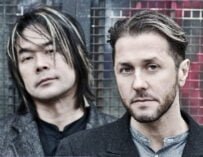
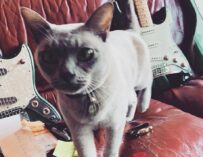
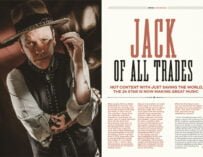
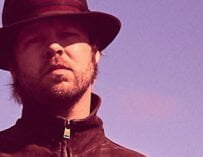

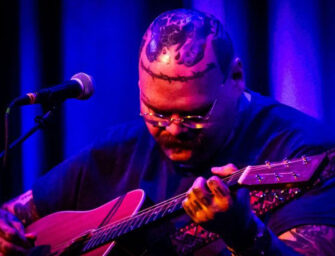
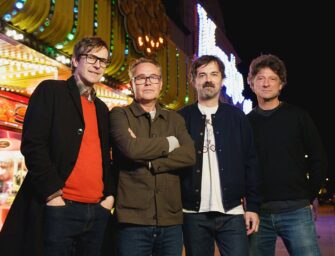

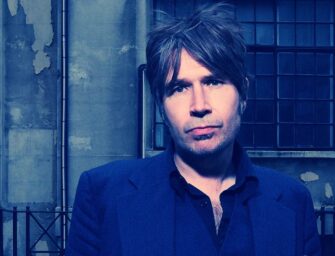























Related Articles